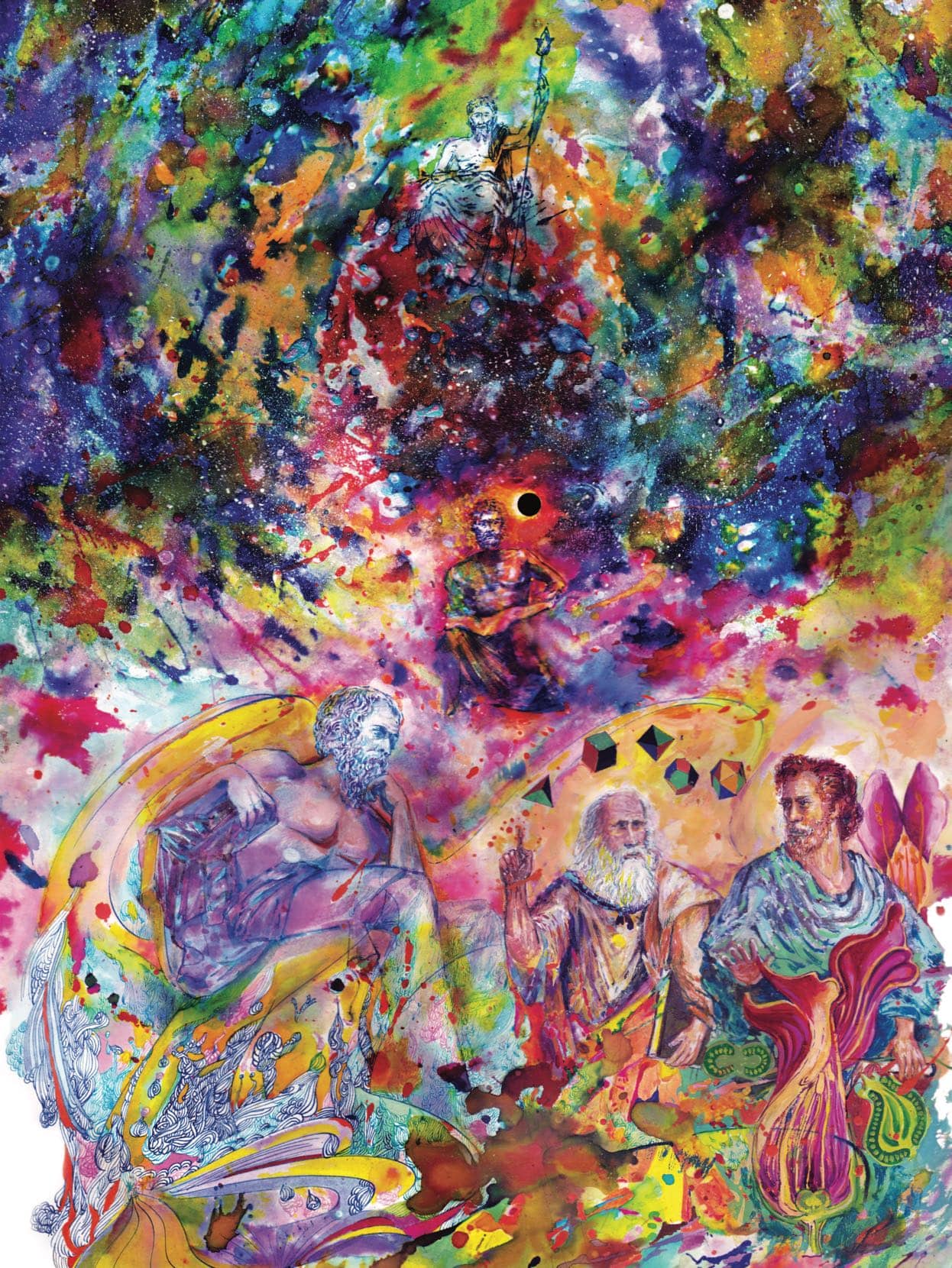
Why do we think of philosophy originating with the ancient Greeks? After all, it’s clear that the ancient Egyptians, who preceded Pythagoras and Plato, Parmenides and Aristotle, by 2,500 years, practiced wisdom too: “The power of Truth and Justice is that they prevail,” reports The Wisdom of Ptahhotep from around 2350 BCE.
In his History of Western Philosophy (1945), Bertrand Russell argued that it’s right to think of philosophy beginning in the sixth century BCE with the Greeks (in Miletus, a Greek colony in what is now Turkey), because it was only then that philosophers began to distinguish thought from theology. As is often the case in his entertaining volume, though Russell was making a point rather than making a case. After all, the thinker who is called the first philosopher, Thales, is remembered for remarking, “All things are full of gods.”
In A New History of Western Philosophy (2004-7) the Oxford philosopher Anthony Kenny proposes that philosophy really begins with Aristotle (384-322 BCE), because Aristotle was the first philosopher to systematically summarize the teachings of his predecessors in order to criticize them. I think there is something in Kenny’s case, because to systematize is a new departure. It’s an approach that Aristotle’s great teacher, Plato, didn’t adopt.
This story is from the June/July 2020 edition of Philosophy Now.
Start your 7-day Magzter GOLD free trial to access thousands of curated premium stories, and 8,500+ magazines and newspapers.
Already a subscriber ? Sign In
This story is from the June/July 2020 edition of Philosophy Now.
Start your 7-day Magzter GOLD free trial to access thousands of curated premium stories, and 8,500+ magazines and newspapers.
Already a subscriber? Sign In

"Stand Out Of My Light"
Sophie Dibben watches Alexander the Great meet Diogenes the Cynic.

Thomas Hobbes (1588-1679)
Hilarius Bogbinder looks at a man who wanted to make Peace from Warre.

The Philosophy of Work
Alessandro Colarossi has insights for the bored and understimulated.

Towards Love
George Mason on love as shared identity.

Hume's Problem of Induction
Patrick Brissey exposes a major unprovable assumption at the core of science.

A Philosophical History of Transhumanism
John Kennedy Philip goes deep into the search for (post-) human heights.

How to Have a Good Life
Meena Danishmal asks if Seneca's account of the good life is really practical.

Horseplay in Hibernia
Seán Moran explores equine escapades in Eire and elsewhere.

Philosophy & Hurling: Thinking & Playing
Stiofán Ó Murchadha knowing how we know.

Philip Pettit & The Birth of Ethics
Peter Stone thinks about a thought experiment about how ethics evolved.